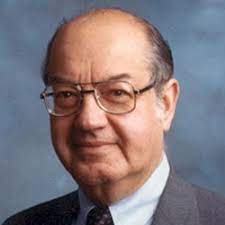Baran, Paul

Bio: (1909-1964) Russian-American economist. Paul Baran was born in Russia, he lived in Germany in the period from 1920 to 1926 and again from 1928 to 1933. He came into contact with the Frankfurt School in Germany and graduated from the University of Berlin. Baran collaborated in a magazine published by the Social Democratic Party of Germany. He came to the United States in 1939, where he completed his master's degree at Harvard. He worked for the Federal Reserve Bank for a time, and after that, he became an assistant at Stanford University. In 1951, he became a professor at the same university, where he remained until his death.
Baran is one of the creators of dependency theory, and his most important book on this subject is The Political Economy of Growth (1957). Baran examines the colonial relations between Great Britain and India and shows that the domestic industry in India was destroyed so that India would become just a territory from which Britain would procure cheap resources. In his book Monopoly Capital (1966), co-authored with Paul Sweezy, monopoly capitalism is presented as a system in which firms do not compete over prices, but compete in sales. The basic feature of such a system is progressive rationalization. Another important feature of monopoly capitalism is that large corporations have broad shareholder ownership and are controlled by managers rather than stockholders.
Fields of research
Capitalism Colonialism Corporations Economy History Industry Management Market Monopoly, Economic RationalityTheoretical approaches
Dependency TheoryMain works
The Political Economy of Underdevelopmen (1952);
The Political Economy of Growth (1957);
Monopoly Capital: An Essay on the American Economic and Social Order (1966);
The Political Economy of Neo-Colonialism (1975).

